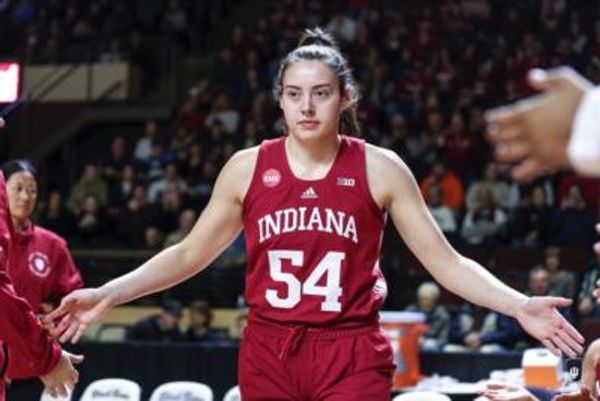After seven weeks of legal arguments, and more than two years after his arrest, Benjamin Glenn Hoffmann has – mid-trial – admitted to killing four men in a shooting spree in Darwin's inner suburbs.
Hoffmann murdered three men — Hassan Baydoun, Michael Sisois, and Robert Courtney – between 5:40pm and 6:20pm in Darwin on June 4, 2019.
He's also admitted to the manslaughter of 75-year-old Nigel Hellings.
Throughout the six weeks of evidence presented to a jury, witnesses testified Hoffmann asked after a man called "Alex", as he fired shots at the Palms Motel.
The court heard Hoffmann believed Alex had been "pimping out" and mistreating his girlfriend.
There was also evidence Hoffmann had consumed a "significant" amount of the drug ice prior to the rampage.
But why did Hoffmann change his plea at the 11th hour?
And what happens now?
Here's what we know so far.
Why did Hoffmann change his plea?
Hoffmann's defence lawyers didn't explain Hoffmann's reasons for changing his plea.
At the beginning of the trial, defence barrister Jon Tippett QC told the jury the "central issue" in the case would be Hoffmann's "state of mind" at the time of the killings.
Then as the trial yesterday entered its seventh week, Hoffmann was arraigned again, on charges slightly adjusted.
The jury was told by Supreme Court Justice John Burns "we no longer have a trial" and they were dismissed.
Hoffmann pleaded guilty to eight charges, including three of murder and one of manslaughter, as well as recklessly endangering life and making a threat to kill.
The charge relating to the death of Mr Hellings was downgraded from murder to manslaughter.
He'd previously been facing 14 charges, including four counts of murder.
What has happened in the Hoffmann trial?
The trial ran for six weeks, and around 100 witnesses were called to give evidence.
Prosecutors largely called evidence in chronological order, presenting witnesses to the jury in order of what they alleged happened on June 4, 2019.
They argued Hoffmann threatened or attacked his victims as he hunted for an acquaintance he believed had wronged the woman he thought was his girlfriend.
Horrific CCTV of the moment Michael Sisois was shot in the head in the carpark of the Buff Club was played to the court.
Further CCTV showed Hoffmann pulling up to Darwin Recycling in Woolner, entering with a gun and later leaving shirtless, covered in blood.
The jury also saw dramatic footage of Hoffmann's arrest and heard chilling audio of a triple-0 call Hoffmann made to police, during which Superintendent Lee Morgan tried to calmly convince Hoffmann to turn himself in.
One of the central issues put to the jury was Hoffmann's apparent belief he'd been poisoned – footage and evidence of Hoffmann seeking medical attention at the Royal Darwin Hospital four times on the morning of the murderous rampage was also presented.
One of Hoffmann's mates, Michael "Pelican" Makrylos, admitted to lending the murderer his ute right before the crimes were committed, with a Bowie knife and 50 shotgun cartridges unsecured in the back seat.
"Pelican" Makrylos denied giving Hoffmann the shotgun.
Alexandros Deligiannis, the man prosecutors said Hoffmann was asking after on June 4, denied claims he'd been pimping out the woman Hoffmann believed was his girlfriend or mistreating her in any way.
Hoffmann's former co-workers said the murderer had spoken about killing and hurting "Alex" on multiple occasions.
A few weeks ago, the trial was temporarily paused because the defence team wanted to call a psychiatrist, who had been "retained very late" to give expert testimony.
Then, when the case returned last week, the jury heard from several psychiatric experts who said Hoffmann had not shown any signs of psychosis or mood disorder when they spoke to him.
What happens now?
Sentencing submissions started yesterday and the court will hear more evidence today.
Justice Burns will receive reports and hear from experts to help him decide how long Hoffmann will spend behind bars.
But he must work within certain legal guidelines, with prisoners convicted of murder in the NT automatically given a life sentence with a 20-year non-parole period.
Those convicted of committing more than two murders face a non-parole period of 25 years.
That means Hoffmann is facing three separate life sentences for the murders of Mr Baydoun, Mr Sisois, and Mr Courtney.
There is no mandatory minimum sentence for manslaughter, but the charge carries a maximum of life behind bars.
Justice Burns has discretion to decide whether Hoffmann will serve these sentences at the same time or one after the other.
On top of this, Hoffmann has also pleaded guilty to four other charges, including one of threatening to kill and three of recklessly endangering life.
Justice Burns will weigh all these elements together and hand down Hoffmann's sentence at a later date.







